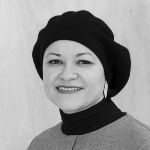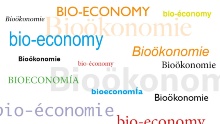Funding
The project is funded by the Federal Ministry of Education and Research (BMBF) and is supposed, subject to the development of the COVID pandemic, to start in autumn 2021.
Funding Period
2021 - 2022
Description
We are part of “Bio-based Urban Economy – A bio-based urban economy for more climate protection and sustainability”, a networking and exploratory Travelling Conference meant to establish practice-based research cooperation with partners in Australia and New Zealand (BMBF funded, 2021-22).
“BioUrbEcon” aims to identify, concretise and investigate research priorities and project implementation in the thematic field of “Bioeconomy in the city” and to initiate project cooperations with partners in the target region Australia and New Zealand. For this purpose, existing and new contacts with scientific and practice-oriented partners were activated and mobilised.
“BioUrbEcon” pursues an inter- and transdisciplinary approach. Both the German project team and the partners from the target region are composed of different disciplines (e.g. energy, urban planning, agriculture, architecture, biotechnology) and are at the same time representatives of different institutions (e.g. universities, research institutions, start-up companies, business development).
“BioUrbEcon” targets three cities in the target region Australia and New Zealand (Brisbane, Syndey and Wellington). As bioeconomic research is excellently positioned there, BioUrbEcon might explore exciting and topical perspectives for bio-energy. Thus approaches from two regions that are located far apart from each other, but with a common basis of knowledge, experience and ambitions, will be bundled and exchanged. BioUrbEcon will address bioeconomic concepts for the city and for urban regions and develop them in the light of sustainability goals (including SDG) and comprehensive approaches (technology, economy, ecology and social issues). In addition to the technological fields of work, innovation efforts from business and politics will be included too.
Four elements will be carried out at each of the target locations, which should lead to an inter- and transdisciplinary connection between science, practice, politics and society:
1: Conference with expert lectures: This element is primarily aimed at the level of science and is carried out at the partner university at the respective destination. In addition to representatives of the university, students as well as stakeholders from practice (including cities, municipalities and companies) are invited.
2: Excursion to innovation locations/spaces for the bio-economy: The excursions, which are carried out together with the local partners, are mainly identified and guided by the local partners in mutual agreement and are adapted to the local conditions. They serve to gain an impression and to explore and discuss possibilities of cooperation and research initiatives as close to practice as possible.
3: Project development in discussion rounds with local partners: Discussion rounds are organized with partners from the scientific community to plan concrete cooperation projects. The aim is to strengthen scientific exchange and relations between actors from the target locations and German science representatives from the regions (DFG, DAAD). To this end, various starting points for cooperation programmes in the bio-economy will be used. Here, an exchange with the German embassies or research attachés and local German institutions involved in research (e.g. GIZ, HBS, KAS) is also envisioned. The individual meetings are planned flexibly, depending on the common interests on the German side and the destinations.
4: Involvement and activation of interest groups (stakeholders): The aim of this element is to promote the exchange between science and companies as well as politics and other stakeholders.
Project Partners
Project manager:
Dr. Ludger Eltrop, University of Stuttgart, Institute of Energy Economics and Rational Energy Use (IER)
Contact at BioMat:
Jun.-Prof. Dr.-Ing. Arch. Hanaa Dahy
Project partners in Germany:
University of Stuttgart, Institute of Energy Economics and Rational Energy Use (IER)
University of Stuttgart, Institute of Urban Planning, Department of International Urbanism (SI)
University of Stuttgart, Building Structures and Structural Design
(ITKE), Department of Biobased Materials and Materials Cycles in Architecture (BioMat)
ifeu- Institute for Energy and Environmental Research Heidelberg
Frauenhofer Institute for Interfacial Engineering and Biotechnology, Stuttgart (IGB)
Visioverdis GmbH, Stuttgart
Project partners in Australia and New Zealand:
Brisbane, Australia
Prof. Dr. Ian O’Hara – Deputy Director, Centre for Agriculture and the Bioeconomy, Institute for Future Environments, Queensland University of Technology (QUT), Brisbane
Sydney, Australia
Prof. Dr. M. Hank Haeusler – Director Computational Design, School of Architecture, Fac. of Built Environment, University of New South Wales (UNSW), Sydney
Wellington, New Zealand
Prof. Dr. Marc Aurel Schnabel – Dean Wellington Faculty of Architecture + Design Innovation; Victoria University of Wellington (VUW), Wellington.
SCION is an NZL Crown research institute that specialises in research, science and technology development for the forestry, wood product, wood-derived materials, and other biomaterial sectors.
More info is also present here:

Hanaa Dahy
Assoc.-Prof. Dr.-Ing.BioMat Department Director


